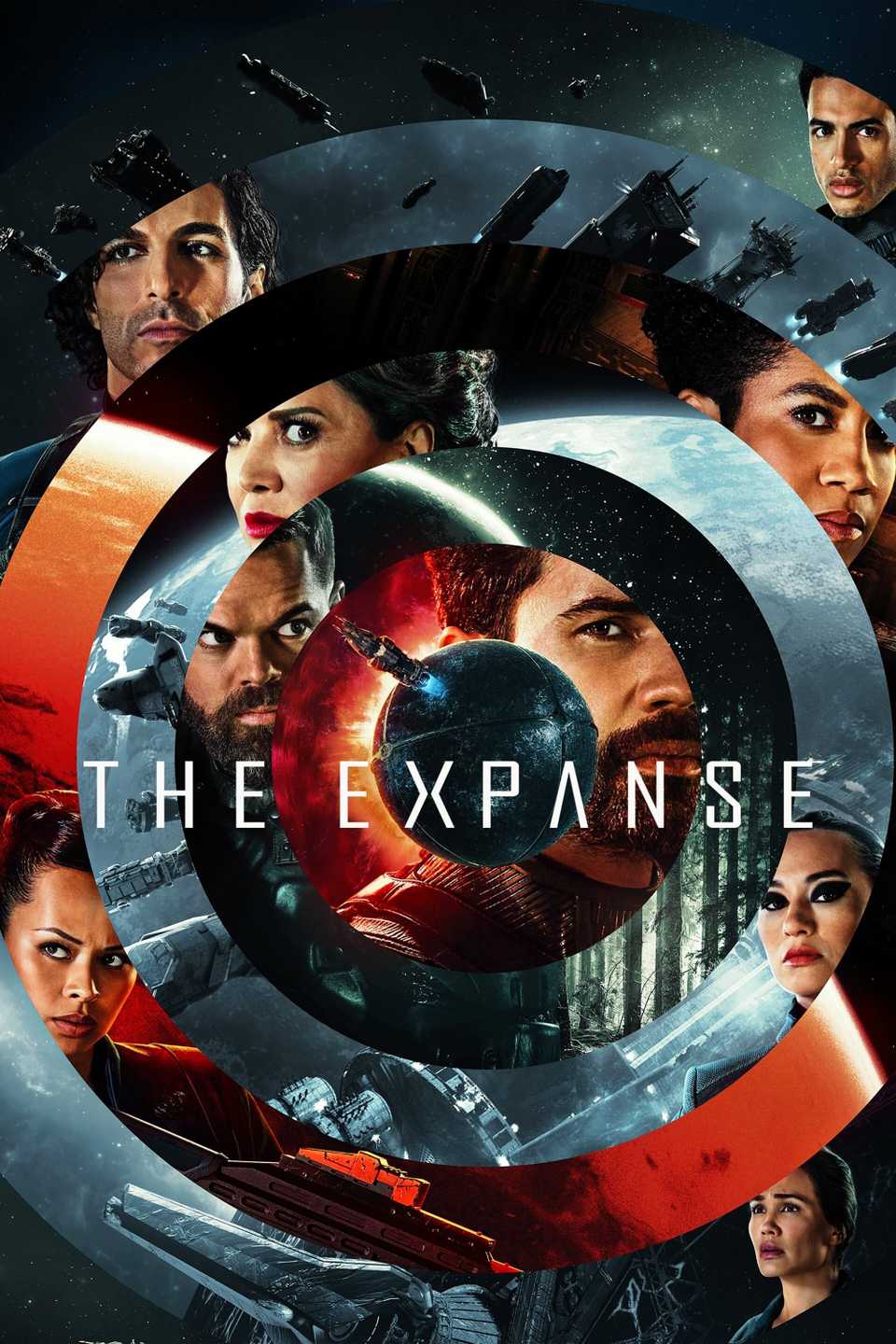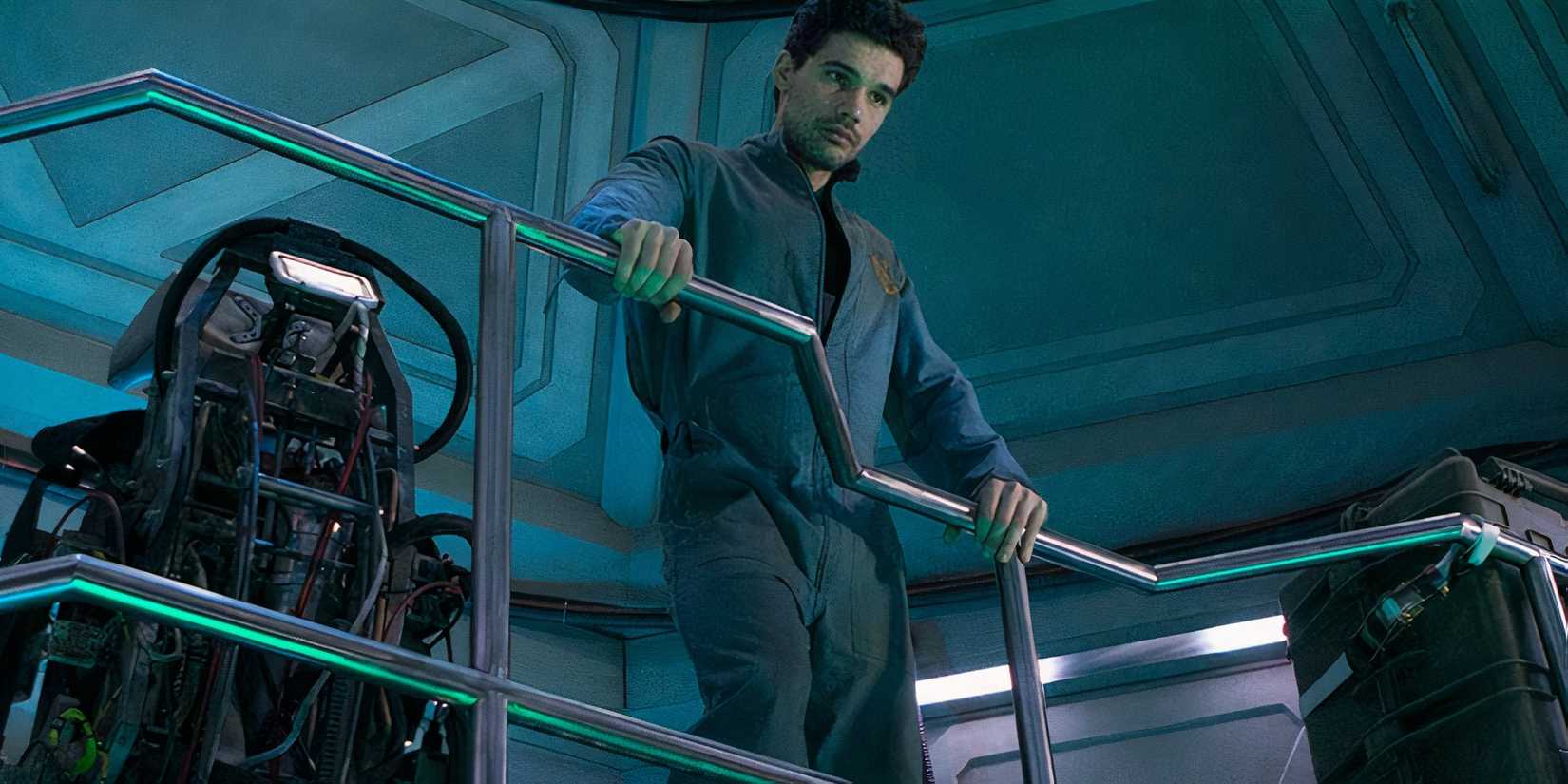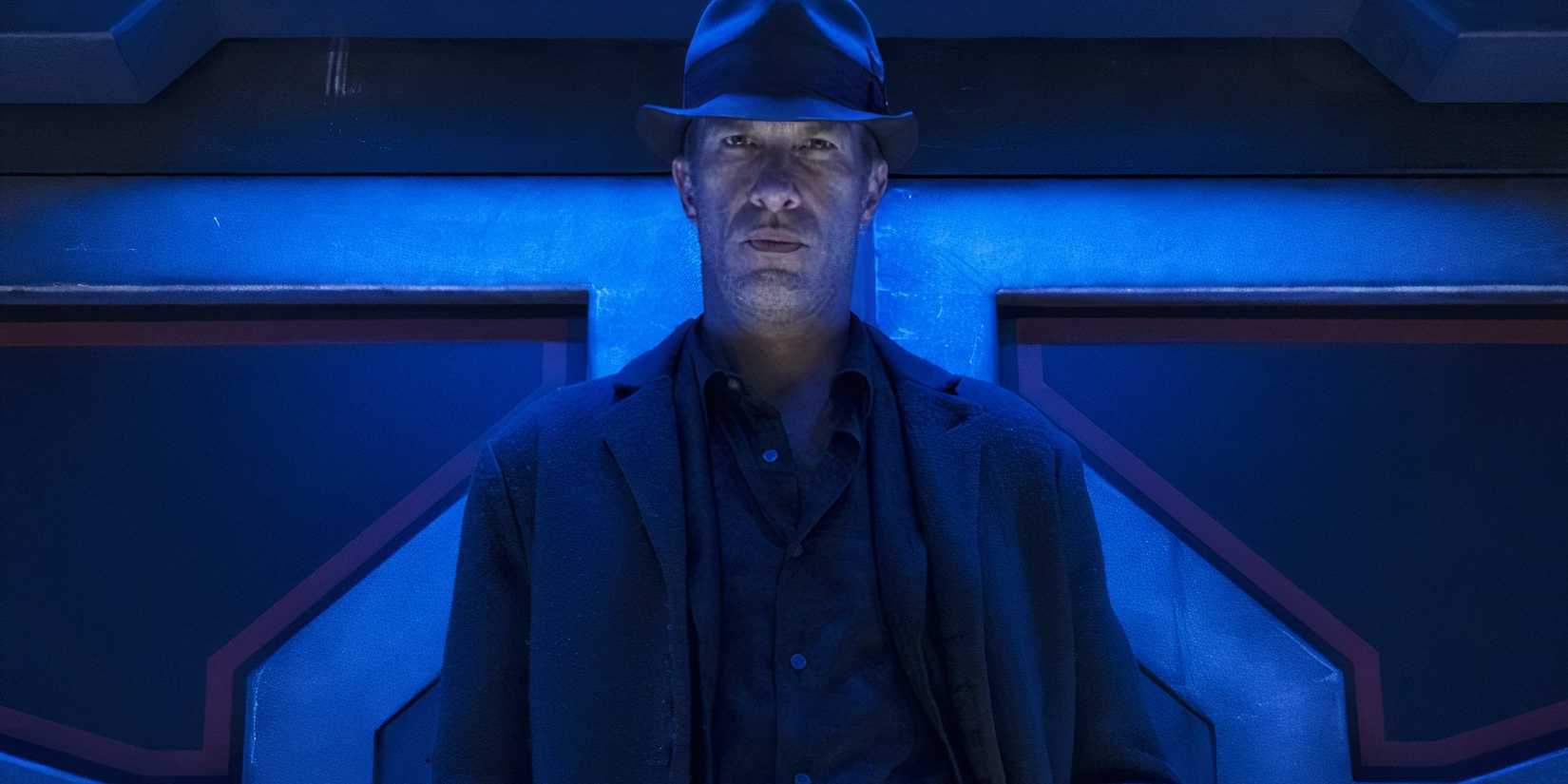The Expanse has solely grown in stature since its conclusion in 2022. Extensively celebrated as one of many biggest sci-fi exhibits not simply of the century however of all time, its fame continues to develop past its loyal fanbase. Regardless of this acclaim, many sci-fi lovers have but to expertise the Rocinante crew’s extraordinary journey throughout a colonized photo voltaic system.
That hesitation is considerably comprehensible. Each few years, a brand new sci-fi sequence arrives that’s hailed as important viewing, solely to fade into obscurity as soon as the hype dies down. Nonetheless, The Expanse isn’t one of those. It endures as a result of it has every thing nice science fiction ought to: dazzling visuals, fascinating worldbuilding, political intrigue, and provocative concepts about humanity’s place within the universe.
Whereas the sequence is greatest skilled chronologically, certain episodes of The Expanse distill its brilliance into unforgettable sci-fi moments. For these nonetheless unconvinced, these entries showcase the perfect of what The Expanse has to supply, serving as excellent entry factors into its gripping, thought-provoking, and uniquely bold model of sci-fi.
Dulcinea (Season 1, Episode 1)
A Pilot That Redefines How To Introduce A Sci-Fi World
“Dulcinea” wastes no time in making its mark. Because the pilot, it pulls viewers into The Expanse’s sprawling imaginative and prescient of humanity unfold throughout the celebrities. From the icy void of house to the tense politics of Earth, Mars, and the Belt, it sketches out a universe brimming with each risk and battle. Few pilots handle such deft worldbuilding.
The episode introduces James Holden (Steven Strait), Naomi Nagata (Dominique Tipper), Amos Burton (Wes Chatham), and Alex Kamal (Cas Anvar), whereas additionally plunging into the thriller of Julie Mao (Florence Faivre). Nonetheless, as a substitute of overwhelming exposition, “Dulcinea” lets its world breathe by way of visuals, ambiance, and refined cultural cues.
For sci-fi followers, the fun lies in its mixture of realism and creativeness. Like Battlestar Galactica’s “33,” this pilot proves The Expanse provides gripping science-fiction from the start. It doesn’t simply introduce a setting – it immerses you in a lived-in future that feels each alien and disturbingly believable.
Cascade (Season 2, Episode 10)
A Reminder Of How Tradition Shapes Humanity In House
What makes “Cascade” so highly effective isn’t simply its intrigue however its thematic weight. The Expanse constantly emphasizes that people don’t merely adapt to house – they evolve into new cultures, new identities. Nowhere is that this clearer than when Bobbie Draper (Frankie Adams) sees Earth’s ocean for the primary time.
The second is breathtaking as a result of it highlights the sheer scale of distinction between Earth-born, Martians, and Belters. A easy wave on a shoreline turns into an existential revelation for Bobbie. That is science fiction at its most poignant: utilizing imagined futures to replicate on what we take as a right right now.
The episode additionally excels in political complexity. Because the factions maneuver, the present underscores that humanity’s divisions are simply as huge because the bodily distances separating them. It’s the kind of considerate worldbuilding that sci-fi followers hungry for depth – more Star Trek than space opera
spectacle – will immediately join with.
It Reaches Out (Season 3, Episode 8)
When Sci-Fi Veers Into The Realm Of Psychological Horror
“It Reaches Out” takes The Expanse into darker territory. James Holden finds himself haunted by a phantom model of Detective Miller (Thomas Jane), an unnerving aspect impact of his exposure to the Protomolecule. The result’s an episode steeped in stress, the place actuality and hallucination blur in unsettling methods.
This shift into psychological sci-fi echoes a number of traditional sci-fi films that see expertise and alien contact drive the human thoughts into disarray. Holden’s experiences create unease not only for him however for the crew round him, as his grip on sanity appears to slide.
For sci-fi followers, “It Reaches Out” demonstrates the present’s versatility. It isn’t confined to battles or politics; it might pivot into near-horror whereas staying firmly grounded in science fiction. That steadiness of psychological dread and speculative science is what makes this episode so memorable in The Expanse’s run.
Doorways & Corners (Season 2, Episode 2)
Sci-Fi Motion At Its Sharpest And Most Tactical
Whereas The Expanse thrives on philosophy and politics, season 2’s “Doorways & Corners” is proof that it might ship adrenaline-pumping motion simply as effectively. The Rocinante crew, alongside Fred Johnson (Chad Coleman), launches a daring raid to grab vital Protomolecule information, and the result’s a meticulously staged assault that feels as uncooked as it’s exhilarating.
Not like the flashy, consequence-free firefights of typical house operas, this sequence is brutal and tactical. Each resolution issues, each bullet counts, and the human price isn’t ignored. It’s motion rooted in realism, which makes it all of the extra gripping.
The episode exhibits how The Expanse can balance spectacle with grounded stakes. Followers who admire the hard-edged fight of Aliens or the tension-filled skirmishes of Battlestar Galactica will discover this raid unforgettable. It’s The Expanse at its most militaristic, proving the present’s vary with out ever sacrificing its intelligence.
CQB (Season 1, Episode 4)
A House Battle That Cemented The Expanse As Should-Watch Sci-Fi
“CQB” is usually hailed because the episode that signaled The Expanse’s endurance. When the Rocinante (then nonetheless the Canterbury survivors) comes beneath assault in a claustrophobic skirmish, the present delivers its first jaw-dropping space battle. The choreography, physics, and visible scale raised the bar for tv sci-fi in 2015.
The sequence works as a result of it respects real-world spaceflight mechanics. There’s no sound within the void, no gravity until induced, and the violence is sudden, catastrophic, and irreversible. For followers of laborious science fiction, this wasn’t simply leisure – it was validation that TV might deal with house with respect.
Past the spectacle, the episode humanizes the battle. Amos and Naomi are examined beneath fireplace, whereas Holden proves himself as a reluctant chief. “CQB” is where The Expanse first showed it might marry nail-biting stress with character growth, making it a cornerstone of the sequence.
Residence (Season 2, Episode 5)
When Philosophy And Spectacle Collide In Beautiful Sci-Fi Trend
“Residence” blends motion with deep philosophical weight, making it considered one of The Expanse’s standout episodes. The crew of the Rocinante races to intercept an asteroid contaminated with the Protomolecule, and Detective Miller confronts Julie Mao in a haunting climax that resonates far past the rapid story.
This episode encapsulates why The Expanse works so effectively: it’s by no means simply in regards to the chase or the combat. Miller’s arc turns into a meditation on love, sacrifice, and what it means to face forces far bigger than humanity can comprehend. It’s epic storytelling disguised as intimate tragedy.
From a sci-fi perspective, “Residence” excels as a result of it treats alien expertise as each awe-inspiring and terrifying. Just like the monoliths in 2001: A House Odyssey, the Protomolecule inspires existential dread whereas forcing people to confront their very own fragility. For followers, that is The Expanse at its most profound.
Saeculum (Season 4, Episode 9)
A Psychedelic Dive Into The Mysteries Of Consciousness
By season 4, The Expanse was unafraid to push the boundaries of conventional sci-fi, and “Saeculum” proves it. James Holden finds himself caught in direct communion with the alien Protomolecule, resulting in a sequence of psychedelic visuals and head-spinning discussions about consciousness and survival.
This isn’t action-heavy storytelling. As an alternative, it leans into the cerebral aspect of science fiction. The imagery borders on surreal, inviting comparisons to Annihilation or, identical to season 2’s “Residence”, 2001: A House Odyssey. It’s uncommon for a present to danger going so summary, however The Expanse turns it right into a spotlight.
“Saeculum” exhibits the sequence’ ambition – its willingness to step outdoors acquainted territory and discover the unknown. For followers who crave sci-fi that doesn’t simply entertain but additionally challenges notion, this episode looks like an ideal encapsulation of The Expanse’s intellectual boldness.
Nemesis Video games (Season 5, Episode 10)
Galactic Politics Pushed To Their Most Devastating Conclusion
Few episodes show the devastating penalties of political battle like “Nemesis Video games.” With Marco Inaros (Keon Alexander) unleashing chaos throughout the photo voltaic system, the delicate steadiness between Earth, Mars, and the Belt collapses completely. The Expanse’s grand political threads come collectively right here with ruthless readability.
That is house opera at its sharpest: not simply spaceships and battles, however the shattering of civilizations beneath ideological extremism. The ripple results prolong far past the non-public stakes of the Rocinante crew, cementing the concept that The Expanse is a real epic.
Followers of sprawling political sci-fi like Dune or Basis will discover this finale notably rewarding. “Nemesis Video games” proves that The Expanse isn’t solely about people – it’s about methods, ideologies, and the galaxy-sized penalties of humanity’s divisions. It’s the present at its most expansive and devastating.
Leviathan Wakes (Season 1, Episode 10)
A Chilling Showcase Of The Protomolecule’s True Potential
As The Expanse season 1’s finale, “Leviathan Wakes” pulls again the curtain on the terrifying potential of the Protomolecule. What begins as intrigue evolves into outright horror, with visuals and ideas that really feel straight out of the perfect sci-fi thrillers. The episode firmly establishes the alien substance as considered one of tv’s most unsettling creations.
The horror is underscored by science. The Protomolecule is as a lot a organic enigma as it’s a technological one, its conduct terrifyingly believable throughout the framework of speculative science. For followers who benefit from the grounded terror of The Thing or Alien, this episode delivers in spades.
“Leviathan Wakes” additionally cements The Expanse as greater than only a space-based political drama – it’s a sequence that may shift into existential terror when wanted. It’s a finale that guarantees the story forward will solely get stranger, scarier, and extra bold.
Gaugamela (Season 5, Episode 4)
A Sci-Fi Spectacle With The Scope Of A Blockbuster Movie
Of all 62 episodes of the sequence, it is “Gaugamela” which captures every thing that makes The Expanse one of many biggest sci-fi exhibits ever made. Marco Inaros (Keon Alexander) launches a devastating stealth asteroid assault on Earth, an act of destruction that mixes political ruthlessness with cinematic spectacle.
The sheer scale of devastation makes it really feel like a catastrophe film in house, however what elevates it’s the meticulous element. The physics of the stealth asteroids, the political fallout, and the non-public reactions all intertwine to make the assault horrifyingly plausible.
“Gaugamela” feels much less like an episode of tv and extra like a two-hour movie distilled into 45 minutes. For sci-fi followers who crave each spectacle and substance, it’s a definitive excessive level of The Expanse – and one of many best moments in modern science fiction storytelling.

- Launch Date
-
2015 – 2022-00-00
- Showrunner
-
Naren Shankar, Mark Fergus, Hawk Ostby
- Writers
-
Mark Fergus, Hawk Ostby
- Franchise(s)
-
The Expanse




















